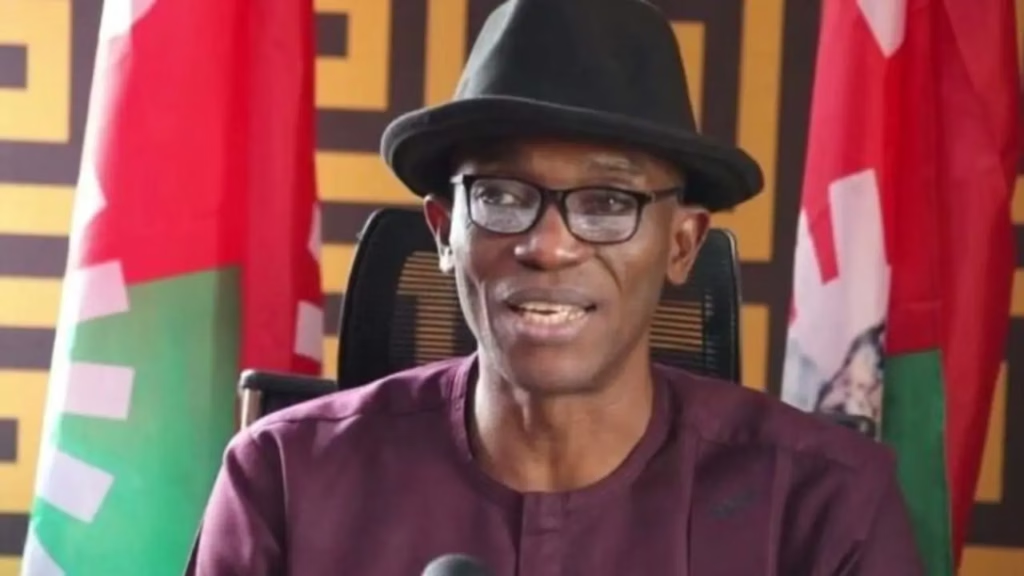A senior official in Nigeria’s Labour Party has challenged the electoral authority’s rejection of Julius Abure’s leadership, asserting that the party’s constitution unequivocally affirms his position as National Chairman. Avotu Johnson, a prominent figure within the opposition party, criticized the Independent National Electoral Commission (INEC) for overstepping its mandate, framing the dispute as a critical test of institutional boundaries in the country’s evolving political landscape.
Speaking during an interview on Channels Television’s flagship program Politics Today, Johnson rebuffed INEC’s recent declaration that it does not recognize Abure as chairman, arguing that the commission’s stance contradicts a Supreme Court ruling affirming political parties’ autonomy over internal leadership decisions. “INEC has misjudged its role as a regulatory body,” Johnson stated. “The Supreme Court made it clear in its Certified True Copy judgment that leadership selection lies solely with the party. Who constitutes the party? Its statutory officers—the Chairman and Secretary—hold the constitutional authority to organize conventions and manage affairs.”
The controversy stems from a prolonged power struggle within the Labour Party, which has faced internal divisions and legal challenges since the 2023 general elections. INEC’s refusal to acknowledge Abure’s leadership, reportedly linked to disputes over the legitimacy of a recent party convention, has raised questions about the electoral body’s influence in partisan disputes. Johnson emphasized that Abure’s position remains valid under the party’s bylaws, adding, “No external entity can override our constitution. The Labour Party’s structures are clear, and Abure leads in full compliance with them.”
Legal analysts note that the clash underscores broader tensions between Nigeria’s electoral oversight institutions and political parties advocating for self-governance. The Supreme Court’s earlier ruling, cited by Johnson, emphasized that regulatory bodies like INEC should focus on compliance with electoral guidelines rather than intervening in leadership matters—a principle now being tested.
The Labour Party, which gained significant visibility during the last presidential race, faces mounting pressure to resolve its leadership crisis ahead of future elections. Critics argue that public infighting risks undermining its credibility, while supporters insist the party’s priority is defending its institutional integrity against perceived regulatory overreach.
As the debate unfolds, analysts stress that the outcome could set a precedent for how Nigeria’s political parties navigate autonomy versus accountability. For now, Abure’s faction maintains that its stance is rooted in legal precedent and constitutional fidelity—a message Johnson reiterated with resolve: “This is not just about individuals; it’s about respecting the rule of law and the rights of political entities to govern themselves.”
